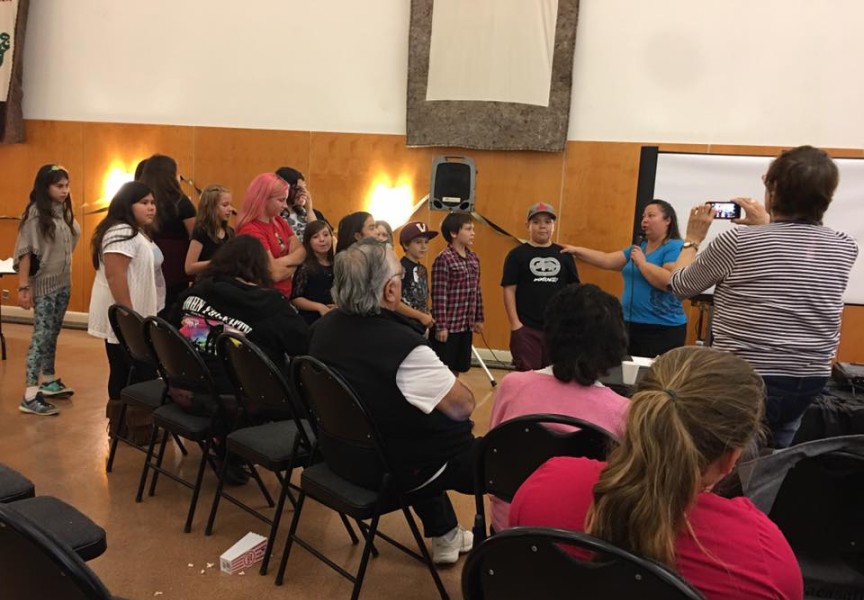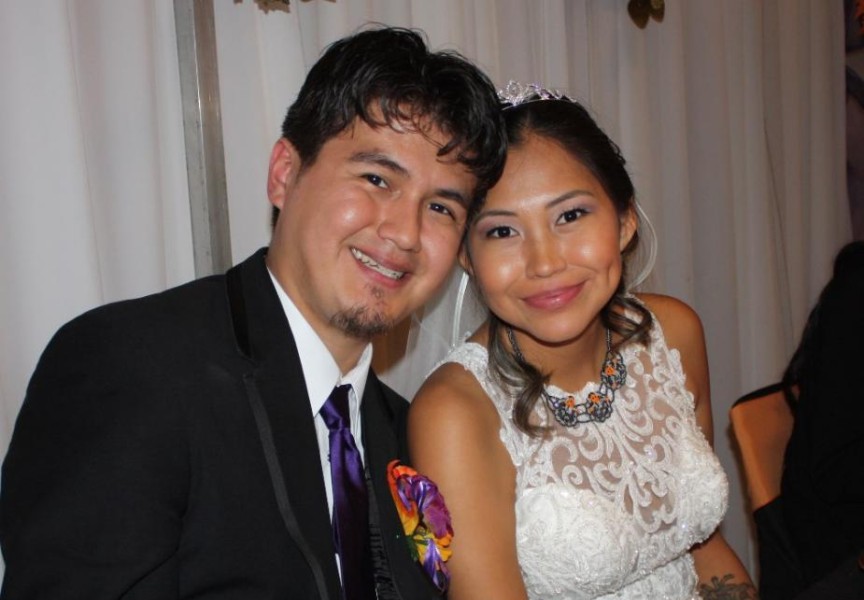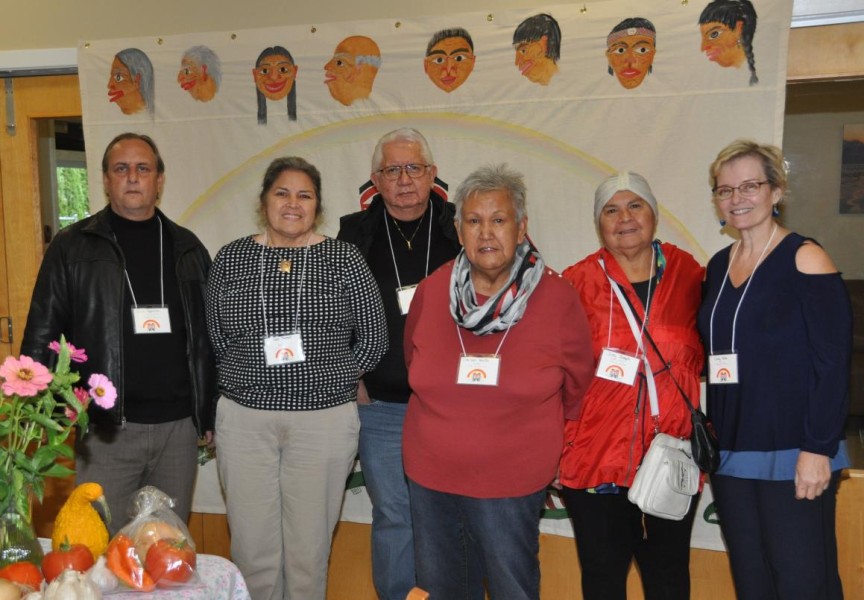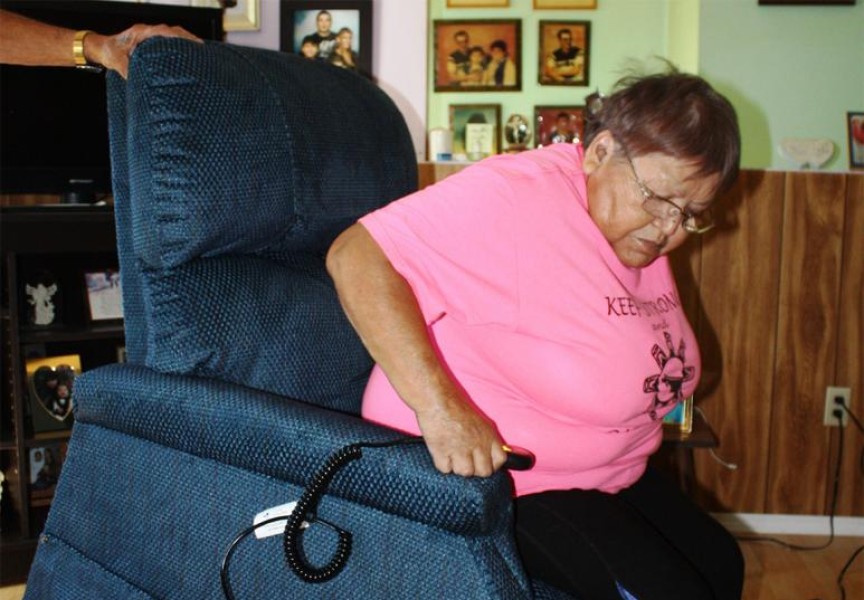The Nuu-chah-nulth Tribal Council has taken time to review the compelling study on the rights of Indigenous people and their challenged relationship with Canada’s governments, released by United Nations Special Rapporteur Dr. James Anaya.
NTC, representing 14 Nations located along the West Coast of Vancouver Island, would like to recognize Dr. Anaya for this work and for addressing several issues Nuu-chah-nulth Nations have struggled with for many years, said NTC President Debra Foxcroft.
Nuu-chah-nulth Nations certainly have their own experiences that bolster many of Dr. Anaya’s findings. He writes, for example, of the human rights violations of the Residential School Era and the generations who “grew up estranged from their cultures and languages with debilitating effects on the maintenance of their indigenous identity.”
Nuu-chah-nulth Residential School survivors led the charge to bring the abuses to the public’s attention, and it was our own late Art Thompson from the Ditidaht First Nation that spearheaded the first criminal and civil proceedings for abuses endured in Alberni Indian Residential School (AIRS). Yet today, we don’t know the extent of that suffering because Canada has yet to disclose fully what it knows about that time, including information on the human biomedical experiments conducted on the students at AIRS, revealed by Dr. Ian Mosby in May 2013.
While Nuu-chah-nulth Nations continue the slow and ongoing work of rebuilding what was lost through that egregious system, including their unique languages, dialects and culture, it does so with little support from the government that destroyed these things in the first place. Anaya’s report shockingly states that $220 million is devoted annually to promote the English and French languages. In 2008 Canada apologized for the residential school system that intentionally suppressed Indigenous language, but Canada spends under $19 million annually for Indigenous language revitalization.
“This is not good enough,” said Foxcroft. “The First Peoples of Canada continue to be treated as second class citizens. This demonstrates a lack of sincerity by Canada to the commitments made by Prime Minister Stephen Harper in his historic apology. To truly respect the spirit of that apology, federal and provincial governments must put action to the Prime Minister’s words.”
A disturbing finding in Dr. Anaya’s report is that there is no change in the human development indicator disparities in health, education, welfare and social services between indigenous and non-indigenous people over the past 10 years. In 2004, Canada was encouraged to intensify efforts to close this gap, yet continued underfunding of health care, education, child welfare and social services delivered on reserve contributes significantly to the inequities. Canada’s governments support Third World countries, but remain blind to the same conditions found in some isolated and rural First Nations communities in Canada.
Even when government makes funding available, it decides unilaterally which groups will have and which will not. For example, delegated child welfare agencies in British Columbia, including the Nuu-chah-nulth Usma agency, continue to wait for critically needed prevention funding that was rolled out in other provinces in 2007. Since that time First Nations children in B.C. have been removed legally from their families’ and communities’ care when an ounce of prevention could have made all the difference to keeping families intact. Our Nations are frustrated to see poverty and social issues claim more and more of our children to foster care because, according to Aboriginal Affairs Minister Bernard Valcourt, funds have yet to be appropriated as ‘taxpayers’ capacity to pay has to be respected.’
NTC was honored to make a presentation to Dr. Anaya in October 2013. We discussed Canada’s refusal to acknowledge Nuu-chah-nulth Constitutionally-protected commercial fishing rights. Canada refuses to negotiate a fulsome fishing regime that will put those rights to practise, blocking our attempts to use our own resources to provide for our people. Canada expends millions fighting us in the court system when it could invest those dollars in improving our situation and contributing to our regional economy. The NTC is demanding a fundamental change in the way this country responds to First Nations’ rights.
“Dr. Anaya specifically referenced the Nuu-chah-nulth fishing rights case in his report because the case represents the experience of many First Nations across the country,” said NTC Fisheries Program Manager Don Hall. “Despite achieving recognition of aboriginal rights from the Supreme Court of Canada, Nuu-chah-nulth Nations have faced glacial-paced negotiations, enormous legal costs, and a government that consistently refuses to acknowledge the Nations as rights holders.”
Dr. James Anaya has made many significant recommendations that NTC believes will improve the situation for Indigenous peoples across the country. We hope that Canada will find a clear path forward in its relationships with Indigenous nations. We are anxious to see a plan for action on the report and commit to working with governments collectively on that plan.
“This is more than just about additional funding. It’s about a new relationship with our people based on respect, recognition, our rights and reconciliation,” said NTC Vice-President Ken Watts. “Governments can no longer use ‘tough economic times’ or the ‘economy’ as an excuse not to live up to its obligations under International and Canadian law. We aren’t asking for everything under the sun. All we want is what’s rightfully ours and we want to work with all levels of governments, but that needs to be done with iisaak (mutual respect) and recognition of hishukish tsawalk (everything is one).”
“We strongly agree with Dr. Anaya’s report and his recommendations,” said Foxcroft, “and are looking forward to government’s commitment to implementing the recommendations in true partnership with First Nations peoples, recognizing our strengths and diversity.”
For more information please contact Debra Foxcroft or Ken Watts at 250-724-5757.
The following links provide background information about a number of topics in today’s announcement.
Human Biomedical Experiments at Alberni Indian Residential School
(One year later: Canada has yet to disclose fully what it knows)
Child Welfare Prevention Funding available, but not in BC
(It’s BC Child and Youth in Care Week: Valcourt says …taxpayers’ capacity to pay has to be respected.)
Fisheries and NTC Presentation to UN Special Rapporteur James Anaya
(It’s fishing season: …glacial-paced negotiations)
http://www.hashilthsa.com/news/2014-01-30/nuu-chah-nulth-fishing-rights-upheld-supreme-court






